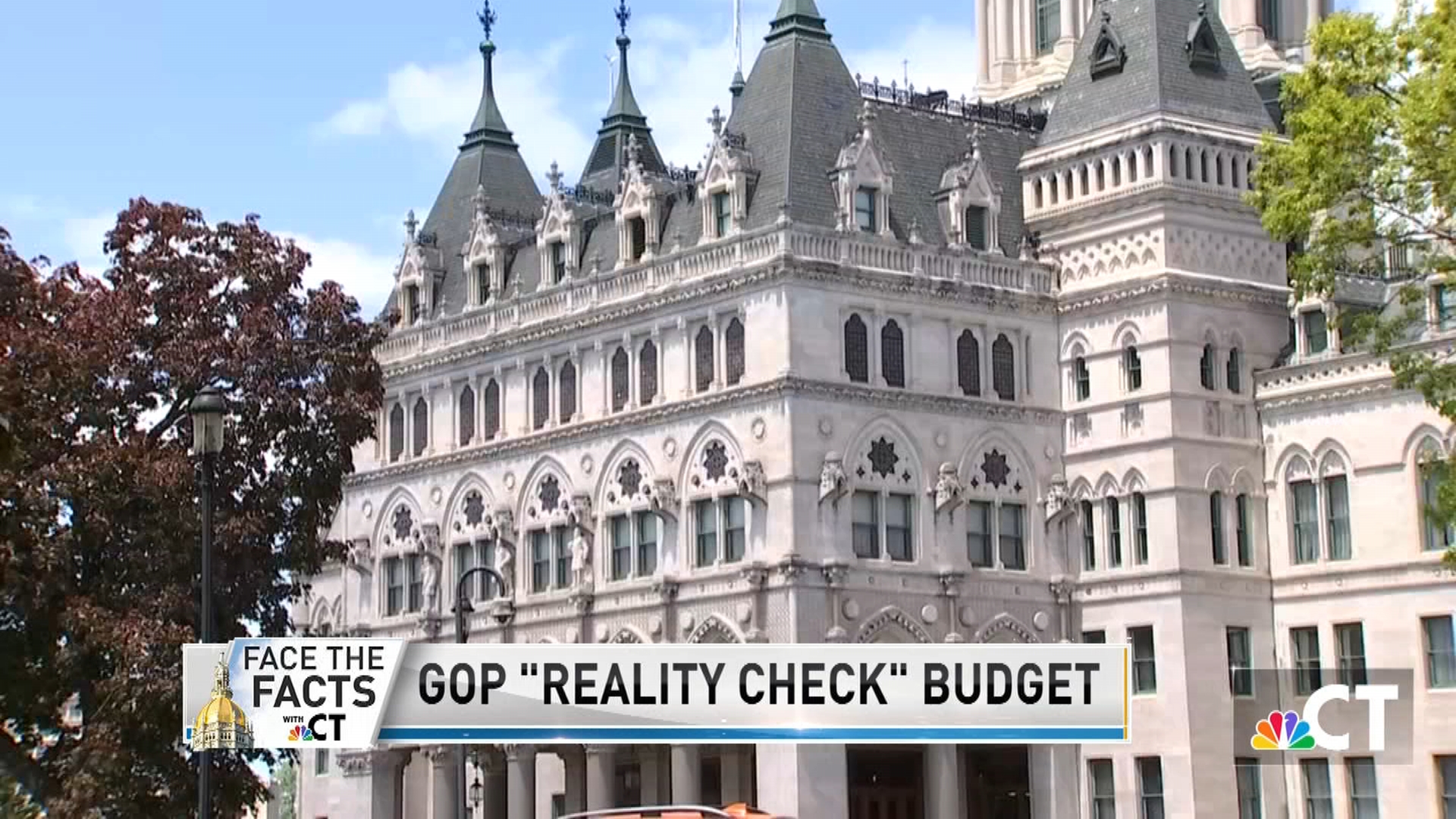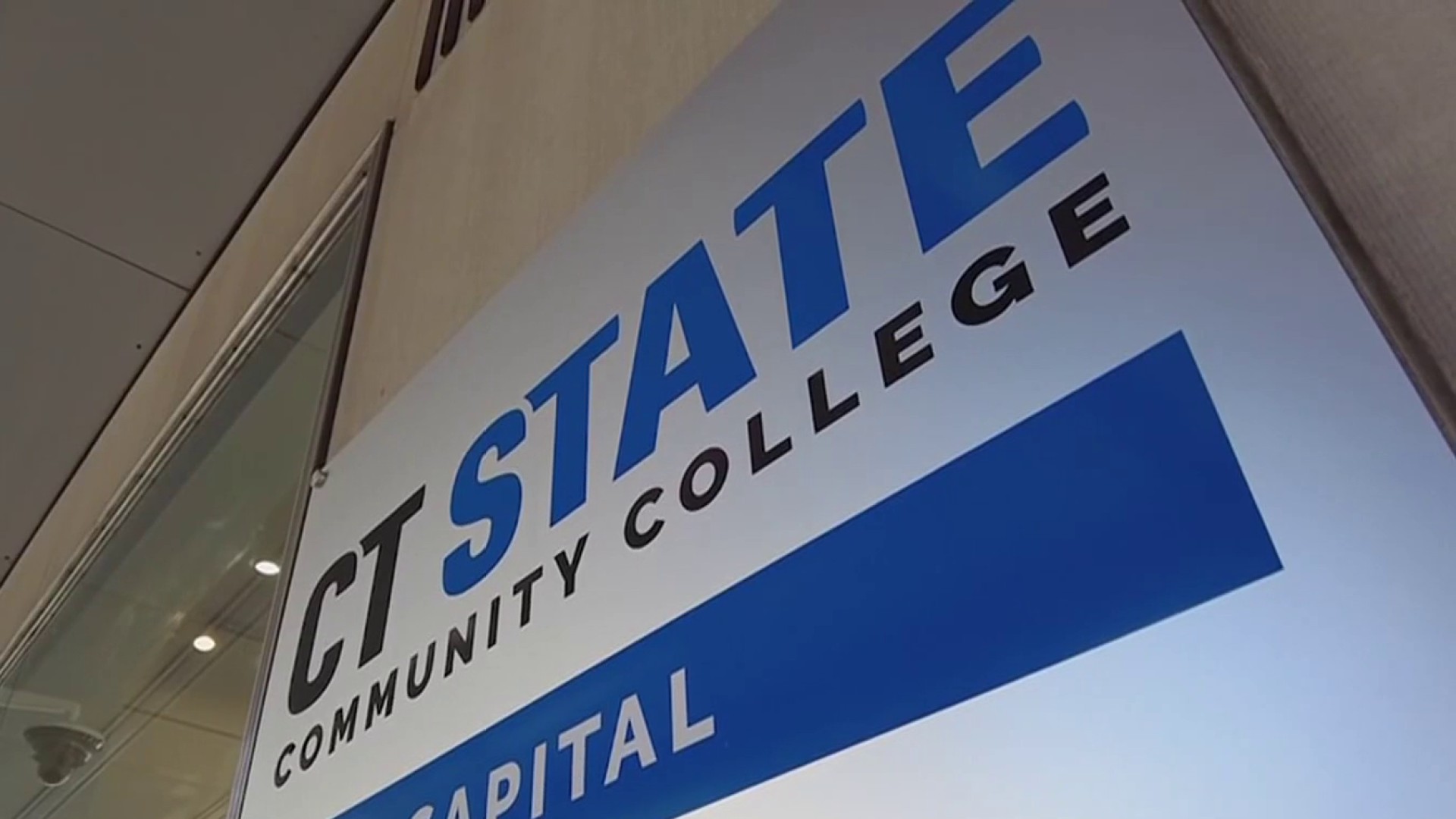Democrats are urging Governor Ned Lamont to declare a fiscal emergency in anticipation of more funding cuts from Washington. Doing so would allow legislators to circumvent the fiscal guardrails.
The cost of Connecticut has been a concern for a long time - housing, electric bills and childcare are just a few things where the state ranks among the most expensive in the nation.
For the seventh straight year, we've had a billion dollars or more in the banks. So with budget surpluses also expected to continue, do we need to change the way we fund core services?
Stream Connecticut News for free, 24/7, wherever you are.
Democrats are urging Governor Ned Lamont to declare a fiscal emergency in anticipation of more funding cuts from Washington. Doing so would allow legislators to circumvent the fiscal guardrails.
House Speaker Matt Ritter (D-Hartford) explains why he’d rather have a plan in place now.
Get top local Connecticut stories delivered to you every morning with the News Headlines newsletter.
Mike Hydeck: So cities and towns say they're still struggling. They're trying to pay for special education, their education costs, infrastructure. Now we're learning that federal money was getting clawed back for them. Is there a plan on the table for cities and towns in education?
Matt Ritter: Well, let's just start with where we are in terms of Washington, OK? All we are saying is, in the next six weeks, as we get more information or lack thereof, we need to be prepared as a state for federal reductions. No one is hitting the alarm button, no one's panicking. But we have a unique system because of the fiscal guardrails. If we don't act by June 30, $1.5 billion will go into the pension fund. It's not to pay our normal cost. It's to pay extra on top of our normal cost. All we're saying is pause that. Let's see what happens. Because you just raised a question about municipalities and special ed. We may need that money. Our budget reserve of $4.2 billion would be closer to $5.7 billion. It all those reserves in case we need them.
Mike Hydeck: So $4.2 billion isn't enough? That's a lot of money.
Face the Facts
Face the Facts with NBC Connecticut goes beyond the headlines, asking newsmakers the tough questions, giving an in-depth analysis of the big stories.
Matt Ritter: Well, if you look back to the last recession, if you have a double whammy of a recession and federal reduction in aid, you would go through that very, very quickly.
Mike Hydeck: Really?
Matt Ritter: Yes, we went through over a billion two years in a row back in the bad times. It was $3 billion in 2011, the deficit. So we're not wishing for bad things to happen. It's just, be prepared. Hit the pause button. And then when you have a full picture from Washington, you wake up whenever that is, you see where you are, and maybe nothing happens, but you've got to act, or that money is gone.
Mike Hydeck: Before for June 30.
Matt Ritter: I'd rather that money be there and then not need it than the other way around.
Mike Hydeck: So you get pushed back a little bit from the governor. The sound bite we just played, Let's hold on. Let's figure out.
Matt Ritter: We agree on that. Wait till June 1.
Mike Hydeck: And Vincent Candelora, Republican, says the same thing. Look, these are one-time cuts we're getting. We've got to figure that out. Is there a way to put that pause on but also say, 'Look, if we don't need it, it goes back to the pension fund.'
Matt Ritter: Of course those conversations can happen, and I don't think, we're not looking to take all this money and spend it on one-time things. We just want to get a full picture. It is a stop. It's just a pause. It's not saying we're not going to do certain things. There's no promises attached to it. But I'll give you an example. If Medicaid is cut by $500 million, people in this state will lose health insurance who have been used to having health insurance. If SNAP benefits are cut, our poorest citizens will suffer because of that. I'd rather know that we can protect them at least for a couple of years, and then maybe Washington changes its tune versus putting more extra money in the pension fund that, admittedly is underfunded, I agree, but it's also 81 years in the making of being underfunded. There might be some urgent needs now that we have to address.
Mike Hydeck: Would that, if you were to put that pause on, would that include the next several budget years, too, or is that just for this year?
Matt Ritter: No, and that's the other misnomer out there. This is not some broad, sweeping change. It's for each fiscal year. That's all it is. It's limited to that. And the term emergency, you know, I wish there were better terms. That's just the term of the statute.
Mike Hydeck: So Dannell Malloy did not declare a fiscal emergency. So far, Governor Lamont has not declared a fiscal emergency. Are there real things to tick off that shows we're in or is it just, 'this is how I feel. I can declare, on the governor's part, I can declare fiscal emergency.' Are the real benchmarks to hit before we're physically in one?
Matt Ritter: No, but you need 91 votes in the House. You need a super majority in the House and Senate. So you'd have to convince, you can't just make it up. You'd have to convince them that it was real. Well, the reason you need to do it now…
Mike Hydeck: So the governor can't unilaterally say 'fiscal emergency, we're there.'
Matt Ritter: No, you got to get three-fifths vote in both chambers. There's a high threshold. In many years, we haven't had 91 Democrats. We do now, but in many years, you would need a bipartisan support. So the statute's pretty strong, but I can just tell you that the headwinds are such between, you know, your lead to the show. There's a lot of headwinds going on. I'm not trying to panic. This is not even, I'm not even here to play politics. I promise you, if it was a Democratic president and this was happening, we would have the same plan. We need to be prepared and assure Connecticut residents that we have a plan to address this, because everyone looks at that budget reserve fund and said, 'Oh, $4 billion is great,' but not if the headwinds are that strong. It will not last you as long as you think it will.
Mike Hydeck: You believe they're that strong?
Matt Ritter: They could be that strong, and you need to act by June 30. If we could act in October, we wouldn't be having this conversation right now, but we have to act in the next six weeks, as we adjourn on June 5.
Mike Hydeck: So what kind of support do you have? We've seen the governor's hesitant. We've seen Vincent Candelora's hesitant. What about in your caucus? What kind of support do have?
Matt Ritter: I think we all agree we have to wait six weeks to see where we are in Washington. And we all hope we don't need it. But if nothing, changed from today, six weeks from now, with what we're hearing about cuts, then, I believe we will do this, and we will take a pause on that volatility transfer.
Mike Hydeck: So one of the things as far as trying to help people now, today, we're planning for the future with this, but the price of power has been argued ad nauseam for years now. How do we attack that?
Matt Ritter: Some interesting concepts coming out in different committees. But one of the more promising ones, beyond the fact that this Millstone deal may get reworked, and we may see some prices lowered there, we do need to look at programs that we put on bills. Are they truly necessary? Another one is smart meters. People might go, what's a smart meter? They have them in Massachusetts. We've been debating it in Connecticut for two years.
Mike Hydeck: They're expensive.
Matt Ritter: They are. And we've got to figure out how to pay for that. But everyone should have on their phone knowing that if I run my dishwasher at four o'clock in the afternoon on July 20, what I'm going to pay versus if I set the timer to do it at midnight, We have to, sometimes, we have to get and educate our residents about rethinking when we use power. These sound like little things. Smart meters could save people 15-20% by doing things that are very, very simple, like run the dryer, you know, at a different hour than the peak hour of five o'clock in the summer.
Mike Hydeck: Giving people relief now and a big plan is a big challenge. I have to leave it there. I have so many more questions, but we're out of time.



